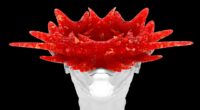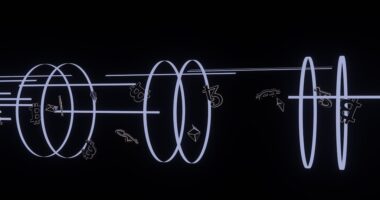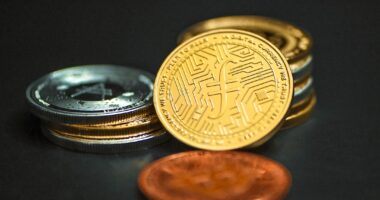At the heart of the burgeoning digital landscape lies blockchain technology, a decentralized ledger system that has revolutionized the way we perceive ownership and authenticity in the digital realm. Unlike traditional databases, which are controlled by a single entity, blockchain operates on a network of computers, ensuring that every transaction is recorded transparently and immutably. This technology underpins the creation of Non-Fungible Tokens (NFTs), unique digital assets that represent ownership of a specific item or piece of content, whether it be art, music, or virtual real estate.
The significance of NFTs extends beyond mere ownership; they encapsulate the essence of digital scarcity, allowing creators to monetize their work in ways previously unimaginable. As artists and creators embrace this new paradigm, understanding the intricacies of blockchain becomes essential for navigating the NFT marketplace effectively. Moreover, the implications of blockchain technology stretch far beyond the art world.
It has the potential to disrupt various industries by providing secure and transparent methods for transactions, identity verification, and data management. For instance, in supply chain management, blockchain can enhance traceability and accountability, ensuring that products are sourced ethically and delivered efficiently. As more sectors begin to recognize the transformative power of blockchain, individuals equipped with knowledge about its functionalities will be better positioned to leverage its benefits.
In the context of NFTs, this understanding allows creators to engage with their audience more meaningfully, fostering a sense of community and trust that is vital in an increasingly digital economy.
Key Takeaways
- Blockchain technology is the underlying technology behind NFTs, providing a secure and transparent way to verify ownership and authenticity of digital assets.
- Digital art and design skills are essential for creating NFTs, requiring knowledge of digital tools and techniques to produce high-quality and unique artwork.
- Marketing and branding knowledge is crucial for promoting and selling NFTs, understanding target audiences and creating a strong brand identity.
- Legal and copyright understanding is important for NFT creators to protect their intellectual property and navigate the legal implications of selling digital assets.
- Networking and community building are key for NFT creators to connect with potential buyers, collaborate with other artists, and build a supportive community.
- Financial literacy and investment skills are necessary for understanding the value and potential returns of NFTs, as well as managing the financial aspects of buying, selling, and trading digital assets.
- Adaptability and innovation are essential for NFT creators to stay ahead in a rapidly evolving market, embracing new technologies and trends to remain competitive.
Digital Art and Design Skills
The Importance of Digital Art and Design in the NFT Space
In today’s digital age, having strong digital art and design skills is crucial for anyone looking to succeed in the NFT space. The ability to create captivating visuals not only enhances an artist’s portfolio but also serves as a critical differentiator in a crowded marketplace. Mastery of various design software tools, such as Adobe Creative Suite, Procreate, or Blender, enables artists to experiment with different styles and techniques, pushing the boundaries of their creativity.
Understanding the Principles of Design
Understanding the principles of design, including color theory, composition, and typography, can significantly elevate the quality of an artist’s work. As NFTs often serve as a bridge between traditional art forms and digital innovation, artists who can seamlessly blend these elements are more likely to capture the attention of collectors and enthusiasts alike. Additionally, digital art is not merely about technical skills; it also involves cultivating a unique artistic voice that resonates with audiences.
Staying Ahead of Emerging Trends and Technologies
This requires artists to engage in continuous learning and experimentation, exploring new mediums and trends within the digital landscape. The rise of augmented reality (AR) and virtual reality (VR) has opened up exciting avenues for artistic expression, allowing creators to immerse their audience in interactive experiences. By staying attuned to emerging technologies and trends, artists can position themselves at the forefront of the digital art movement.
Crafting Narratives that Connect with Viewers
Ultimately, honing digital art and design skills is not just about creating visually appealing pieces; it is about crafting narratives that connect with viewers on a deeper level, fostering emotional engagement that transcends the screen.
Marketing and Branding Knowledge

In today’s hyper-competitive environment, having a solid grasp of marketing and branding principles is essential for artists looking to establish themselves in the NFT space. The digital marketplace is saturated with talent, making it imperative for creators to differentiate themselves through effective branding strategies. This involves not only developing a unique visual identity but also articulating a compelling narrative that resonates with potential buyers.
Artists must consider how their personal stories, values, and artistic philosophies can be woven into their brand messaging. By doing so, they can create an emotional connection with their audience, fostering loyalty and encouraging repeat purchases. Moreover, understanding various marketing channels is crucial for reaching a wider audience.
Social media platforms like Instagram, Twitter, and TikTok have become vital tools for artists to showcase their work and engage with fans. Each platform offers unique opportunities for storytelling and interaction; thus, artists must tailor their content accordingly. Additionally, leveraging email marketing and building a personal website can enhance an artist’s visibility and credibility in the NFT space.
Collaborations with other creators or influencers can also amplify reach and introduce artists to new audiences. Ultimately, a well-rounded marketing strategy that combines both online and offline efforts can significantly enhance an artist’s presence in the competitive NFT landscape.
Legal and Copyright Understanding
As the NFT market continues to expand rapidly, understanding legal and copyright issues becomes increasingly important for creators. The unique nature of NFTs raises complex questions regarding ownership rights and intellectual property protection. Artists must be aware of how copyright laws apply to their work in the digital realm, particularly when it comes to reproducing or selling their creations as NFTs.
This includes understanding how to protect their intellectual property through copyright registration and what rights they retain when minting an NFT. Additionally, artists should familiarize themselves with licensing agreements that may accompany their work, ensuring they maintain control over how their art is used or distributed. Furthermore, navigating the legal landscape surrounding NFTs requires vigilance against potential infringements or disputes.
As more individuals enter the NFT space, instances of copyright violations or unauthorized reproductions may arise. Artists must be proactive in monitoring their work online and taking appropriate action if they discover unauthorized use. This may involve sending cease-and-desist letters or pursuing legal action if necessary.
By equipping themselves with knowledge about legal frameworks and copyright protections, artists can safeguard their creative output while confidently engaging in the NFT marketplace.
Networking and Community Building
In any creative industry, networking plays a pivotal role in fostering growth and opportunity. For artists venturing into the NFT space, building connections within the community can lead to collaborations, mentorships, and exposure to new audiences. Engaging with fellow creators through social media platforms or attending virtual events can facilitate meaningful relationships that extend beyond mere transactions.
By participating in discussions about trends or sharing insights about their artistic processes, artists can position themselves as thought leaders within the community. This not only enhances their visibility but also cultivates a sense of belonging among peers who share similar passions. Moreover, community building extends beyond individual relationships; it encompasses creating spaces where artists and collectors can interact meaningfully.
Platforms like Discord or Telegram have emerged as popular hubs for NFT enthusiasts to share ideas, showcase work, and discuss industry developments. By actively participating in these communities, artists can gain valuable feedback on their creations while also establishing themselves as approachable figures within the space. Additionally, hosting virtual exhibitions or collaborative projects can further strengthen community ties while showcasing diverse talents.
Ultimately, fostering a supportive network not only enriches an artist’s experience but also contributes to the overall growth of the NFT ecosystem.
Financial Literacy and Investment Skills

Mastering Financial Literacy in the NFT Market
As artists navigate the complexities of the NFT market, financial literacy becomes an indispensable skill set. Understanding how to manage income generated from NFT sales is crucial for long-term sustainability in this rapidly evolving landscape. Artists must familiarize themselves with concepts such as budgeting, taxation implications of cryptocurrency transactions, and investment strategies tailored to their unique circumstances.
Empowering Informed Decision-Making
This knowledge empowers creators to make informed decisions about reinvesting profits into their artistic endeavors or diversifying their portfolios through other assets. Additionally, developing investment skills can open up new avenues for artists seeking to expand their financial horizons. The NFT market is characterized by volatility; thus, understanding market trends and conducting thorough research before making purchases or sales is essential.
Diversifying Investments for Long-Term Stability
Artists should consider diversifying their investments beyond NFTs by exploring traditional assets such as stocks or real estate. By cultivating a holistic approach to financial management that encompasses both creative pursuits and investment opportunities, artists can build a stable foundation for their careers while maximizing their earning potential.
Adaptability and Innovation
In an industry defined by rapid change and technological advancement, adaptability is key for artists looking to thrive in the NFT space. The digital landscape is constantly evolving; new platforms emerge regularly while trends shift almost overnight. Artists must remain agile in their approach—willing to experiment with different styles or mediums while embracing emerging technologies such as augmented reality (AR) or artificial intelligence (AI).
This willingness to innovate not only keeps an artist’s work fresh but also positions them as forward-thinking creators who are attuned to the pulse of the industry. Moreover, adaptability extends beyond artistic practices; it encompasses an artist’s ability to pivot in response to market demands or shifts in consumer behavior. As collectors become more discerning about what they purchase as NFTs—favoring unique experiences over mere ownership—artists must be prepared to evolve their offerings accordingly.
This may involve exploring interactive elements within their work or collaborating with technologists to create immersive experiences that captivate audiences. By fostering a mindset rooted in adaptability and innovation, artists can navigate challenges while seizing opportunities that arise within this dynamic landscape—ultimately ensuring their relevance in an ever-changing world.
FAQs
What are NFTs?
NFTs, or non-fungible tokens, are digital assets that represent ownership or proof of authenticity of a unique item or piece of content, such as artwork, music, videos, or collectibles, using blockchain technology.
What skills are required for a successful NFT career?
Some of the key skills required for a successful NFT career include a strong understanding of blockchain technology, digital art and design skills, knowledge of cryptocurrency and decentralized finance (DeFi), marketing and promotion abilities, and an understanding of intellectual property rights and copyright law.
How important is blockchain technology knowledge for an NFT career?
Blockchain technology knowledge is crucial for an NFT career as it forms the foundation for the creation, buying, selling, and trading of NFTs. Understanding how blockchain works, including smart contracts and decentralized storage, is essential for navigating the NFT space.
Why is digital art and design skills important for NFT careers?
Digital art and design skills are important for NFT careers because NFTs often involve the creation and sale of digital artwork, collectibles, and other digital content. Having the ability to create visually appealing and unique digital assets can set individuals apart in the competitive NFT market.
How can knowledge of cryptocurrency and DeFi benefit an NFT career?
Knowledge of cryptocurrency and decentralized finance (DeFi) can benefit an NFT career by enabling individuals to understand the financial aspects of NFTs, such as buying, selling, and trading using cryptocurrencies, as well as participating in NFT marketplaces and platforms that utilize DeFi protocols.
Why is marketing and promotion important for a successful NFT career?
Marketing and promotion are important for a successful NFT career because they help individuals showcase their NFTs to potential buyers, build a brand and reputation within the NFT community, and drive interest and demand for their digital assets.
How does understanding intellectual property rights and copyright law impact an NFT career?
Understanding intellectual property rights and copyright law is crucial for navigating the legal aspects of creating, selling, and buying NFTs. It helps individuals protect their own work, respect the rights of others, and avoid potential legal issues related to ownership and authenticity of digital assets.





